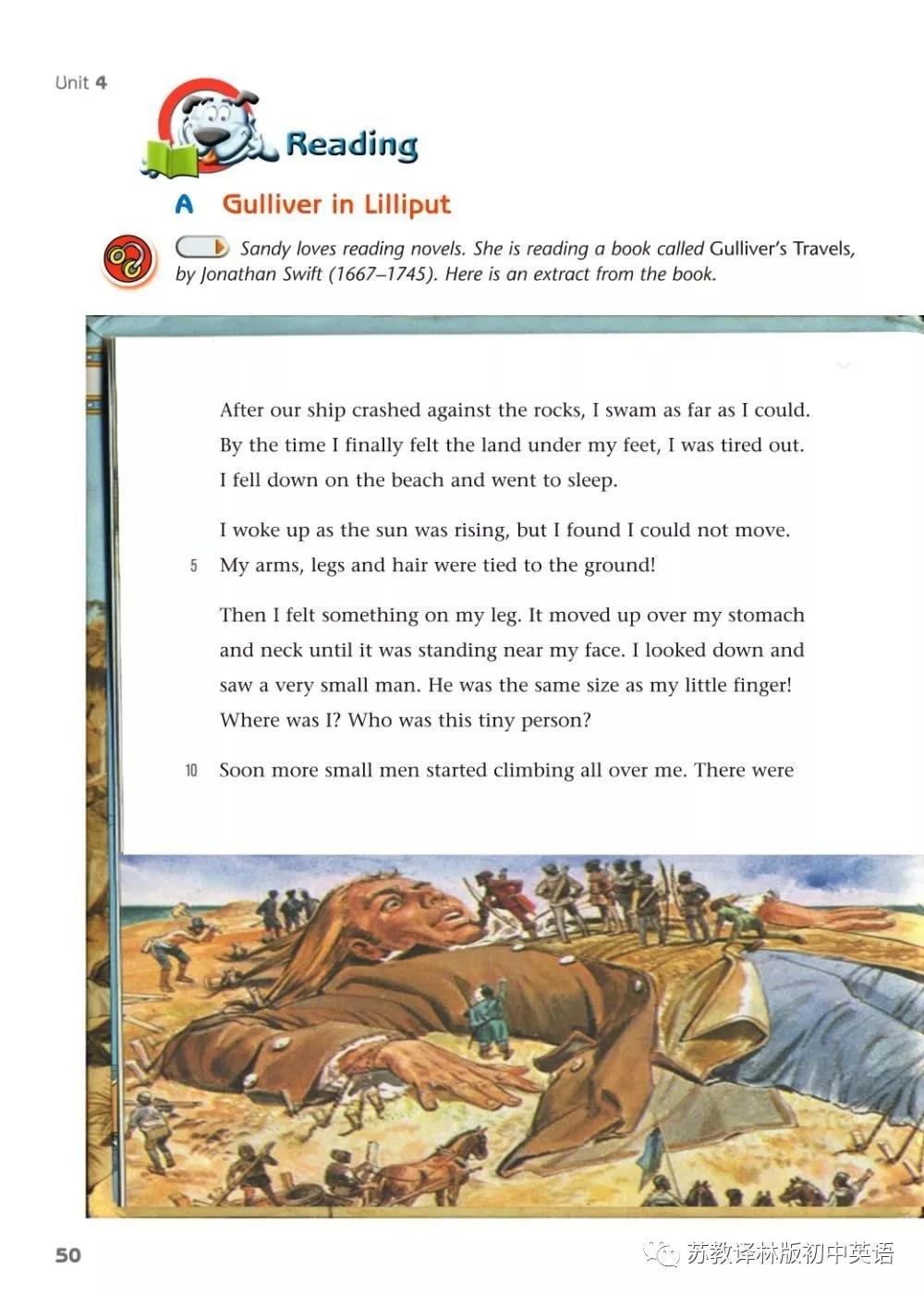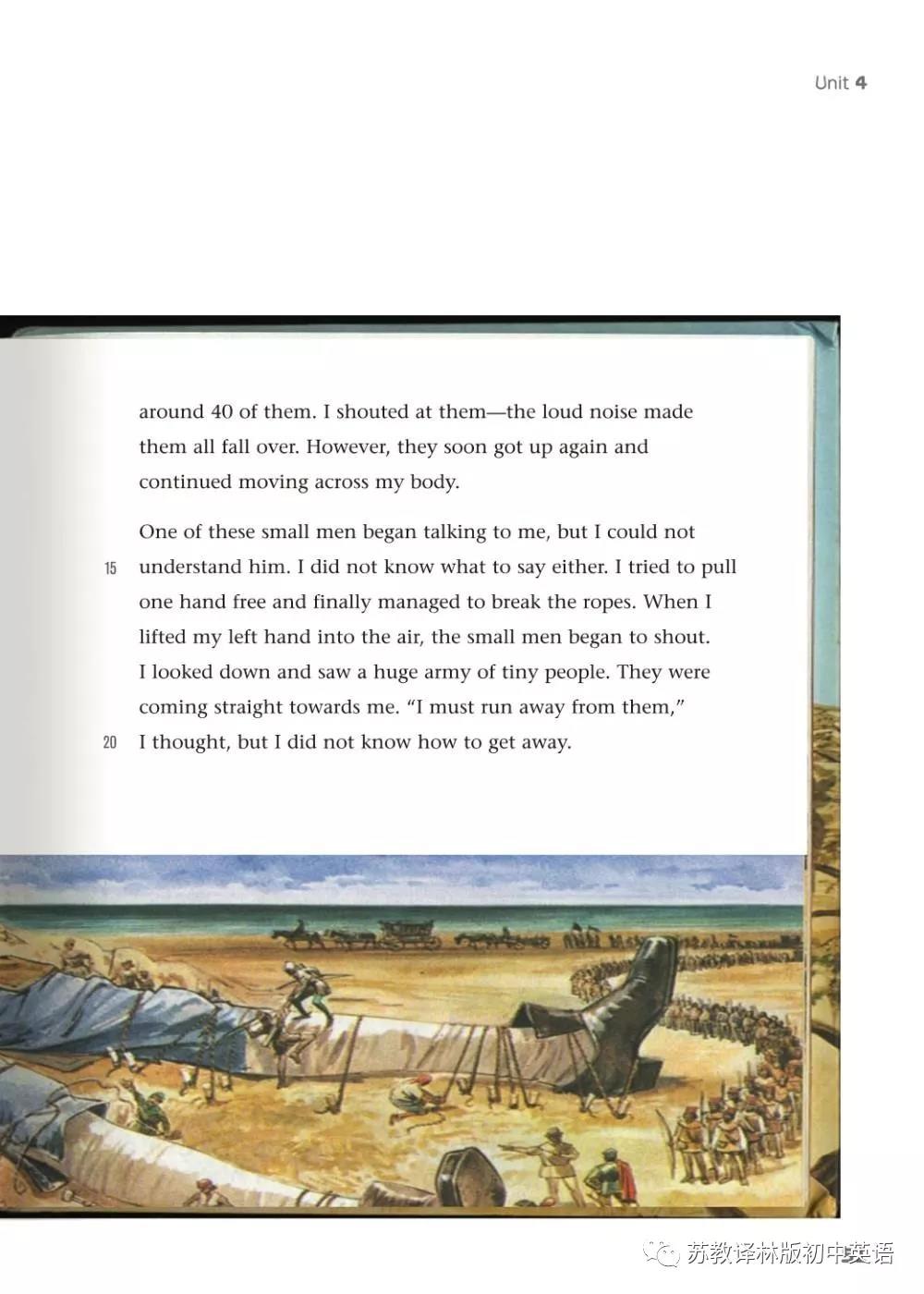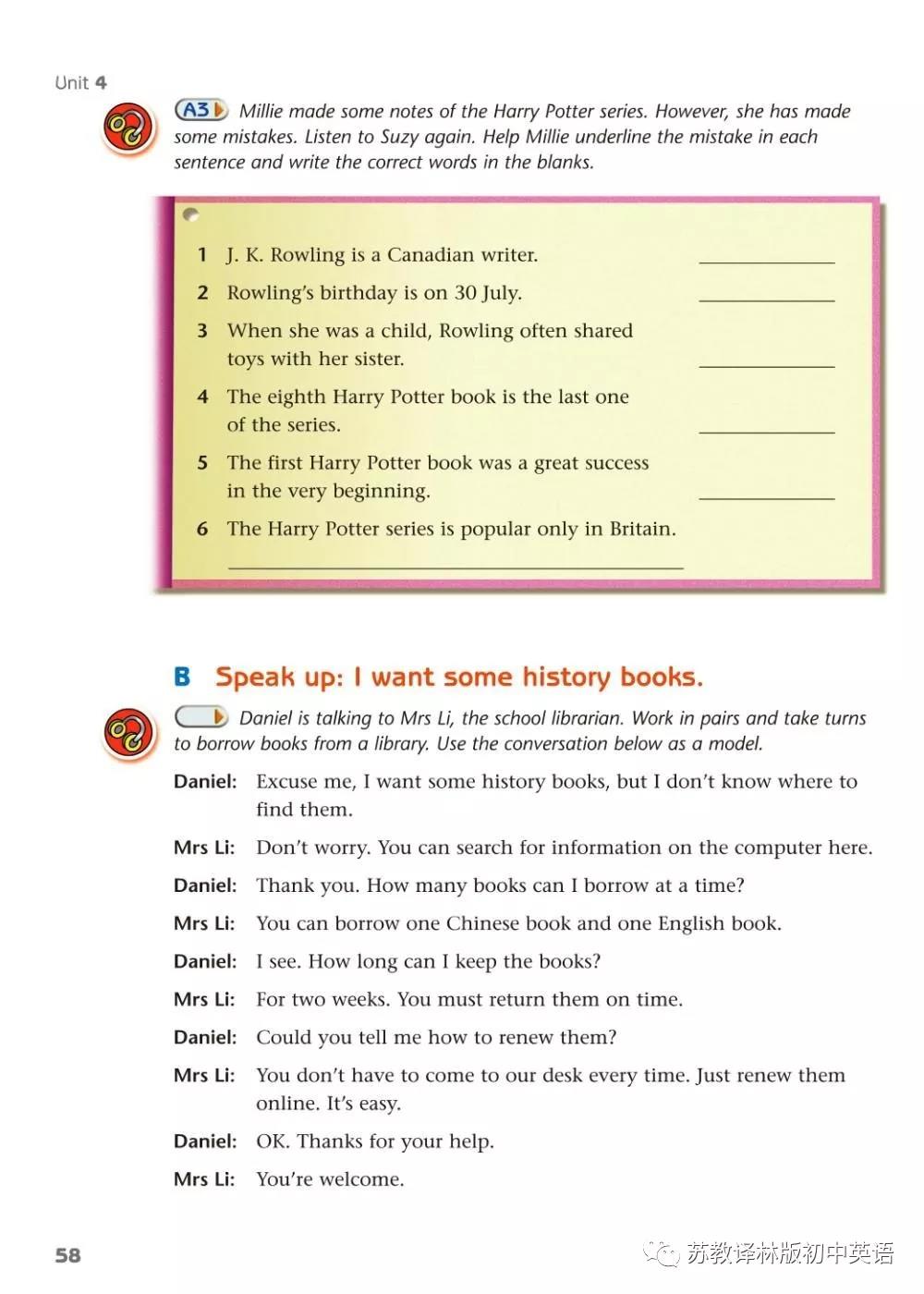-
2020-04-11
-
2020-04-11
-
2020-04-11
-
2020-04-11
-
2020-04-11
更新时间:2020-04-11浏览:次评论: 条
2020-04-11
2020-04-11
2020-04-11
2020-04-11
2020-04-11
| read | n.读物 |
| cooking | n. 烹饪,烹调 |
| novel | n. 小说 |
| Germany | n. 德国 |
| knowledge | n. 知识 |
| spare | adj. 空闲的;多余的 |
| French | adj. 法国(人)的 |
| writer | n. 作者, 作家 |
| ugly | adj. 丑陋的 |
| touch | vt.感动,触动 |
| against | prep.紧靠,碰,撞 |
| tie | vt.捆,绑 |
| over | prep.从一边到另一边 |
| stomach | n. 腹部,胃 |
| until | conj. 直到...为止 |
| finger | n. 手指 |
| tiny | adj. 极小的 |
| fall over | 摔倒 |
| continue | vt. &vi. 继续 |
| either | adv.(否定句中)也 |
| manage | vt.&vi.设法完成;管理 |
| lift | vt. 举起,抬高;提高 |
| army | n.大批,大群 |
| must | modal v.应该,必须;一定 |
| unable | adj. 不能的,不会的 |
| shoulder | n. 肩膀 |
| hand | vi.交;递,给 |
| hand in | 上交, 递交 |
| and so on | ...等等 |
| review | n.评论 |
| return | vt.归还 |
| on time | 准时 |
| renew | vt.续借;更新;重新开始 |
| series | n.一系列;系列节目 |
| publish | vt. 出版 |
| so far | 到目前为止 |
| Canadian | adj.加拿大(人)的 |
| at a time | 每次, 依次 |
| online | adv.在线,联网 |
| sail | vt.&vi.航行 |
| hidden | adj. 隐藏的 |
| confidence | n. 信心 |
| experience | n. 经历, 经验 |
| advice | n.建议,忠告,劝告 |
| librarian | n. 图书管理员 |
| habit | n. 习惯 |
| classical | adj. 古典的 |
| opposite | prep. 在...对面;与...相反 |
| open up | 开启;开创;开辟 |
| tired out | 筋疲力尽 |
8B Unit4 电子课本








8B unit4 A good read
【重点短语】
1. a charity show 一场慈善演出
2 .the host of the charity show 慈善演出的主持人
3.be chosen to be the monitor 被选为班长
4. practise a lot 多加练习
5. be sure 确信,肯定
6. only if 除非
7. advertise on the internet 在网上登广告
8. give out the leaflets 分发传单
9. donate money 捐钱
10. organize a charity show 组织一场慈善演出
11. sell…to… 把…卖给…
12. raise money 筹钱
13. Project Green Hope 绿色希望工程(慈善机构)
14.Project Hope 希望工程(慈善机构)
15. Save China’s Tigers 拯救中国虎(慈善机构)
16. Spring Bud Project 春蕾计划(慈善机构)
17. return to school(go back to school) 返回学校
18. return sth to…(=give sth back to…) 把…还给…
19. big cats 大型猫科动物
20. in poor areas 在贫困地区
21. write to … 写信给…
22. hear from sb=receive a letter from sb 收到…的来信
23. free time 空闲时间
24.because of…(+名词、代词或动词-ing形式) 因为…
25. TV cameras 电视镜头
26. watch the show 看演出
27.on time 准时
28. in time 及时
29. introduce sb to… 把…介绍给…
30. on duty 值日
31. at the right time 在适合的时间
32.at the same time 同时
33. at the beginning of… 在…开始时
34. at the end of… 在…结束时
35. the big day 伟大的一天
36. keep doing sth 一直做某事
37. twenty minutes before the show 演出前20分钟
38. get/ go into the theatre 进入剧场
39. No time to be nervous any more 没有时间紧张了
40. make noise 发出噪音
41. become a little bit easier 变得有点容易了
42. seem to do sth 似乎
43. be over 结束
44. a local business 当地企业
45. have a lot of support 得到许多支持
46. take part in 参加(活动)
47. Best wishes 致以最美好的祝愿
48. write down 写下,记下
49. by mistake 弄错了
50. at least 至少
51. at most 最多
52. It is a big success 真是太成功了
53. help pay for their education 帮助支付他们的学费
53.set up the stage 搭建舞台
55. have a meeting/ hold a meeting 开会
56. hold a charity show 举行慈善演出
57. arrange work among the students 在学生中安排工作
58. organize a play 组织剧本
59. donations are welcome 欢迎捐赠
60. thank the following for their help and support
感谢下列提供我们帮助和支持的人
61.on a snowy night 在一个下雪的夜晚
62.from now on 从现在开始
63.day and night 日日夜夜
64.keep silent 保持沉默
65.care about 关心
【词汇拓展】
1.cook v. → cooking (n.) 烹饪
2.France n. → French(adj.) 法国(人)的
3. write v. → writer(n.) 作家
4.sell v. → sales (n.) 销售量[复]
5. Canada n. → Canadian (adj.)
6.confident adj. → confidence (n.)
7. advise v. → advice (n.)
8.stomach n. → stomachs (复数)
9. able adj. → unable (反义词)
10.hide v. → hidden (adj.) 隐藏的
11. library n. → librarian (n.) 图书管理员
12.class n. → classical(adj.) 古典的

【重点句子】
1.Have you decided what to do with these books, Hobo?
霍波,你已经决定怎样处理这些书了吗?
2. After our ship crashed against the rocks, I swam as far as I could.
在我们的船触礁之后,我尽可能远地向前游。
3.By the time I finally felt the land under my feet, I was tired out.
当我感到陆地在我的脚下时,我已经筋疲力尽了。
4. It moved up over my stomach and neck until it was standing near my face.
它在我的肚子和脖子上移动,直到它站在离我的脸很近的地方。
5. I tried to pull one hand free and finally managed to break the ropes.
我尽量挣脱一只手,最终设法弄断了绳子。
6. How many books can I borrow at a time?
我一次可以借多少本书?
7. I also want to travel and have exciting experiences in the future.
在将来,我也想去旅行,并且有激动人心的经历。
【重点语法】
一、 宾语从句
宾语从句就是用一个句子来充当宾语,放在谓语动词的后面。学习宾语从句要注意一下几个问题:
① 宾语从句的引导词
A. 当宾语从句是陈述句时,用that 引导,that 常可省略。例如:
I know that the boy is from Japan.
B. 当宾语从句是一般疑问句时,用if 或 whether 引导。 例如:
I want to know if he will come back tomorrow.
C.当宾语从句是特殊疑问句时,用特殊疑问词引导。例如:
He didn’t know when his mother was born.
②宾语从句的语序
宾语从句一定要用陈述句的语序。例如:
Can you tell me where he stayed last night?
③宾语从句的时态
当主句是现在时时,从句用所需的任何时态
当主句是过去时时,从句用过去时态的某种时态
例如:He said he was playing games at that time.
二、疑问词 + 动词不定式
由两部分构成:疑问词和动词不定式(wh-+to do)。疑问词部分包 括疑问代词who, whom, what, which 和 whose 以及疑问副词 when, where 和 how。此外,连接词 “whether”也适用 . 它主要具有以下几种功能:
①当主语
例如:When to hold the meeting has not yet been decided.
Where tolive is a problem.
②当宾语
常接在forget, fi out, discuss, decide, tell,teach, know, learn, wonder, remember 等动词 之后作宾语例如:
We must know what to say at a meeting.
He could not tell whom to trust.
Do you know how to play bridge?
③当表语
例如:The problem is where to find the first aid.
The question is who to elect.
④当名词同位语
例如:Tom had no idea which book to read first.
The question whether to confess troubled the girl.
⑤用于宾语补足语, 双重宾语
某些动词后可接“sb.+ 疑问词 + 不定式”构成的双重宾语,这类动词常用的有 advise, ask, show, teach, tell 等.
三、情态动词
① must与 have to 的区别
情态动词 must和 have to 都有“必须”的含义,它们的用法如下:must “必须”、“应该”的用法:
1.must 表示“必须”、“应该”。
例如:Wemust protect our environment.
Everyonemust obey the rule.
2. must 的否定形式must not 表示“不应该”、“禁止”、“不准”。语气比较强烈。例如:
You mustn’t speak like that.
You mustn’t be late for school.
3. 在回答must 的问句时,肯定形式用 must 来回答,但否定形式用 needn’t 或 don’t have to 来回答。而不用 mustn’t 来回答。例如:
--MustI be home before 8 o’clock?
--Yes,you must. /No, you needn’t./No, you don’t have to.
4.have to表示“必须”、“不得不”.例如:
He hasto stay in bed for 3 or 4 days.
We will have to get up early tomorrow.
5.must 表示的是说话人的主观看法,而 have to则表示的是客观需要。Must 一般只有现在时, 而 have to 有更多的形式。
② Have to与 have got to 的区别
have got to 虽然是 have to 的口语形式,但二者在用法上有严格的区别:have to 的前面还可以 用情态动词或助动词,而 have got to 却不可以;have to 的否定形式为 don’t/doesn’t/didn’t +have to, 疑问式为 Do/Does/Did + 主语 + have to…? 而 have got to 的否定形式是在 have 后加not, 疑问式把 have 提前。
① We don’t have to go home. ①Do you have to go home?
② We haven’t got to go home. ②Have you got to go home?
奇速英语全国热线:400-1000-028
欢迎关注微信公众号:奇速优课
工号:QS0043
注:图文源于网络,如有侵权请联系我们删除!
今晚20点蔡章兵教授 第二场腾讯公益直播开始预定 直播主题 学会这几招终生受益 英语阅读如同看中文一样轻松 (适合中小学师生及家
发布时间:2020-04-03 浏览:158次 评论:条
要想招生好服务就要好,招生模式也要好,更要定好招生战略,还要形成品牌影响力,也要有好的教师团队......看到这种只想说一句,
发布时间:2020-04-03 浏览:165次 评论:条
奇速英语为何涨分快?奇速英语秋季在线直播课有何特色?奇速英语作为中国英语培训十佳品牌、中国在线教育百强品牌、CCTV全国中小
发布时间:2020-04-01 浏览:234次 评论:条
Unit 2单词 (音标) 1. France n. 法国 2. French adj. 法国的 3. flag n. 旗帜 4. wine n. 葡萄酒 5. tick v. 标记号;打上钩
发布时间:2020-03-26 浏览:130次 评论:条
Unit 3 单词 (音标) 1. blind adj. 瞎的;失明的 2. radio n. 无线电广播 3. programme n. 节目 4. helpful adj. 有用的;有帮
发布时间:2020-03-26 浏览:133次 评论:条